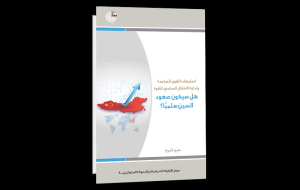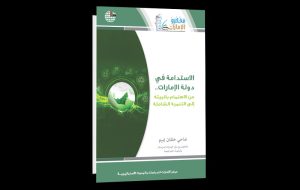In a scenario where Iran acquires nuclear weapons, a prevailing concern is that Tehran would more aggressively challenge the interests of the US and its allies. The US policy of imposing sanctions, while also pursuing diplomatic engagement with Iran, is intended to dissuade the Islamic Republic from developing nuclear weapons capability, but is not guaranteed to resolve the nuclear crisis. Even a military attack against Iran’s nuclear facilities would likely only stall its progress, rather than prevent it from developing nuclear weapons. Consequently, this report considers the consequences of a nuclear-armed Iran for the United States and its main regional allies, including the GCC countries and Israel.
The report examines Iran’s primary motivations and interests, and how they have influenced its approach to major foreign policy issues, with a specific focus on its relations with the US, GCC and Israel. It then assesses whether achieving nuclear weapons capability would alter Iran’s objectives and policies. The key question is whether a nuclear-armed Iran would rethink its objectives and recalibrate its policies, becoming a more aggressive power. The study is based on the assumption that Iran will succeed in assembling and fielding a relatively small nuclear arsenal within the next few years. It also assumes that neither the US nor Israel would attack Iran before it obtains nuclear weapons capability.
The key findings are as follows:
– Iran seeks to undermine what it perceives to be the US-dominated order in the Middle East. However, it does not have territorial ambitions and does not seek to invade, conquer or occupy other nations. Its chief military aim is to deter a US and/or Israeli military attack, while undermining US allies in the Middle East.
– Nuclear weapons are unlikely to alter Iran’s core interests and strategies. Rather, nuclear weapons would reinforce Iran’s traditional national security objectives, which include deterring a US and/or Israeli military attack.
– Iran may gain a sense of confidence and prestige from obtaining nuclear capabilities, but other factors, such as the regional geopolitical environment and Iran’s political, military, and economic capabilities, will have a greater bearing on its policy calculations.
– Iranian possession of nuclear weapons will lead to greater tensions between its Shiite religious government and conservative Sunni states in the region. However, it is highly unlikely nuclear weapons will be used against other Muslim countries. Moreover, Iran’s ability to undermine the GCC is limited, particularly given its diminishing influence resulting from its support of the Syrian government.
– Nuclear weapons may provide Iran with a deterrent, but are unlikely to lead to Iranian dominance over GCC states, particularly in light of Iran’s deteriorating economy.
– Iran views Israel in ideological terms. However, it is unlikely that Iran would use nuclear weapons against Israel, given its overwhelming conventional and nuclear military superiority.
– The Iranian government does not make use of terrorism for ideological reasons; its support for terrorism is motivated by cost and benefit calculations, with the aim of maintaining deterrence and expanding its influence in the Middle East.
– It is unlikely that Iran would extend its nuclear deterrence to non-Iranian groups, or provide them with nuclear technology.
– Iran’s possession of nuclear weapons would create greater instability in the Middle East. An inadvertent or accidental nuclear exchange between Israel and Iran is a dangerous possibility. However, there is little evidence to suggest that rogue groups could easily access Iranian nuclear weapons, even if the regime in Tehran were to collapse.
The author concludes that nuclear weapons will not change Iran’s fundamental interests and strategies, nor will they provide Tehran with the ability to reshape the Middle East’s geopolitical order. Nuclear weapons will reinforce Iran’s deterrent capabilities, but will not provide Iran with significantly more influence and power in the region.
Iran maintains important economic relations with several GCC nations, and aggressive behavior toward these countries would jeopardize its own interests. Any Iranian attempt to impede shipping in the Gulf, or ‘close’ the Strait of Hormuz, would therefore likely backfire. Iran is heavily dependent on freedom of navigation in the Gulf, and any interference with that could inflict more harm on Iran than the US and GCC nations.
In addition, the US and GCC nations’ military capabilities greatly outweigh those of Iran; nuclear Iran would effectively be deterred by the expansion of US deterrence to include GCC countries. Possession of nuclear weapons would reinforce Iranian deterrence in the Arabian Gulf, but it is more likely to turn to conventional military measures if its critical interests, including the survival of the Islamic Republic, were under serious threat.
There is strong evidence to suggest that Iran would not be greatly emboldened by obtaining nuclear weapons capability. However, its possession of nuclear weapons will heighten instability in the Middle East.
About the author
Ali Reza Nader is a senior International Policy Analyst at the RAND Corporation. His research focuses on Iran’s policy dynamics, its policy-making elite, and foreign policy. Widely published on these topics, Nader has an MA in international affairs from George Washington University, US.
Publisher: Emirates Center for Strategic Studies and Research
Year of publication: 2014 [In Arabic]













